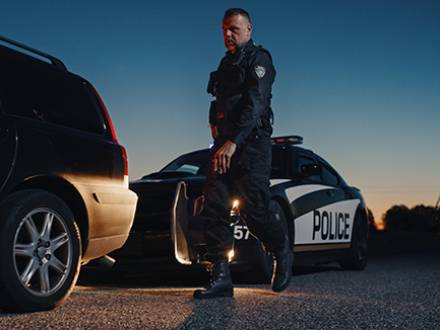FOURTH AMENDMENT FRIDAY FUNDAMENTALS - CASE #1: Delaware v. Prouse
 I am pleased to present the first installment of Fourth Amendment Friday Fundamentals, where we take a brief look at landmark cases involving Fourth Amendment decisions that impact our work as defenders of justice for those citizens accused of DUI/DWI and traffic offenses across the country.
I am pleased to present the first installment of Fourth Amendment Friday Fundamentals, where we take a brief look at landmark cases involving Fourth Amendment decisions that impact our work as defenders of justice for those citizens accused of DUI/DWI and traffic offenses across the country.
Our first case is Delaware v. Prouse, 440 U.S. 648 (1979). In that case, an officer stopped a vehicle and seized marijuana he observed in plain view inside the car. He later testified at a suppression hearing that he observed neither a traffic violation nor an equipment issue nor any suspicious activity, but rather made the stop to check the license and registration. The Supreme Court held that unless there is AT LEAST an articulable and reasonable suspicion that a motorist is unlicensed or that the automobile is not registered, such a stop violates the Fourth Amendment.
The Court wrote: "An individual operating or traveling in an automobile does not lose all reasonable expectation of privacy simply because the automobile and its use are subject to government regulation. … Were the individual subject to unfettered governmental intrusion every time he entered an automobile, the security guaranteed bay the Fourth Amendment would be seriously circumscribed. As Terry v. Ohio recognized, people are not shorn of all Fourth Amendment protection when they step from their homes onto the public sidewalks. Nor are they shorn of those interests when they step from the sidewalks into their automobiles." Id., 440 U.S. 663.
This decision established a limit on police intrusion, curbing the ability of police to conduct random "spot checks" and found that for a traffic stop to be lawful it must be based on at least reasonable suspicion of criminal activity or illegal activity.
Stay tuned for more Fourth Amendment Friday Fundamentals.





